Have you seen those tempting ads popping up recently promising a futuristic gadget that blocks speed cameras and traffic lights? Too good to be true? You bet. The so-called “iRosesilk AI-Techology Vehicle Signal Concealer Device” that’s being heavily peddled on social media is nothing but an elaborate scam designed to prey on driver’s dreams of avoiding fines and driving with greater freedom. But before you get lured in by the claims of effortless invisibility and carefree traffic light running, keep reading to uncover the truth.
This article will reveal the deceitful tactics behind the iRosesilk scam and explain precisely how you are being duped. We’ll outline the false promises versus the disappointing reality, the exaggerated product demonstrations, and the sneaky ways scammers maximize their profits. You’ll learn how to protect yourself from this predatory scheme being promoted relentlessly online and on social platforms.
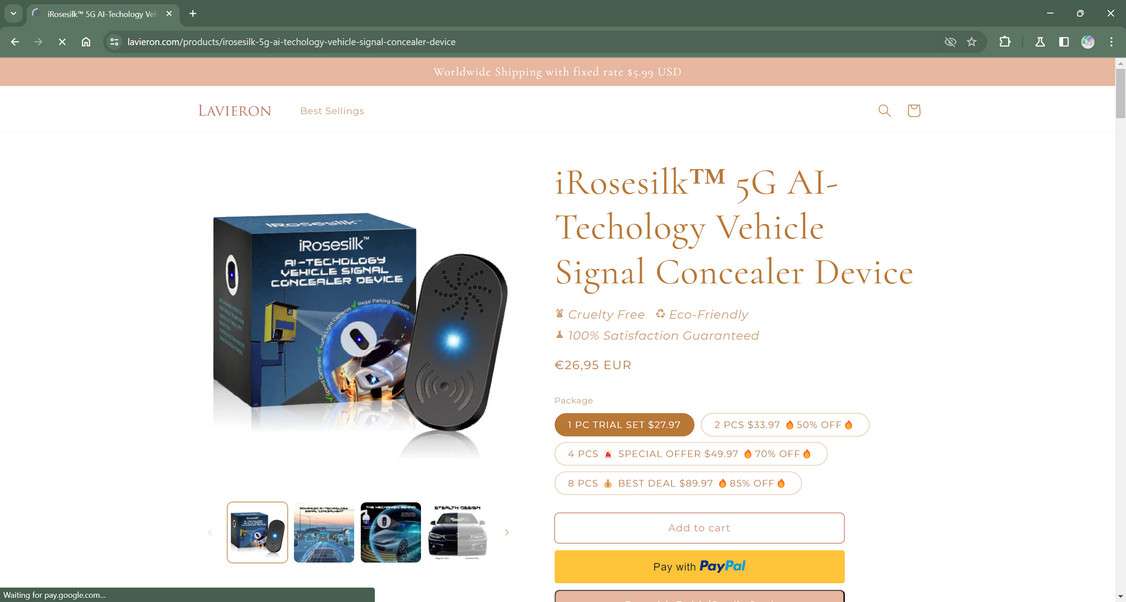
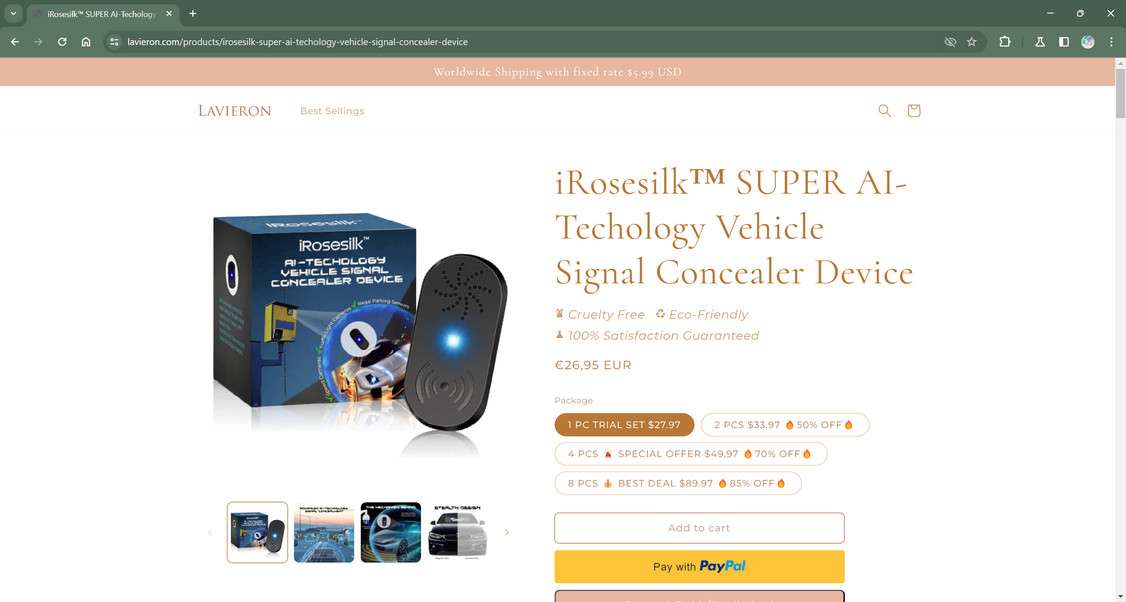
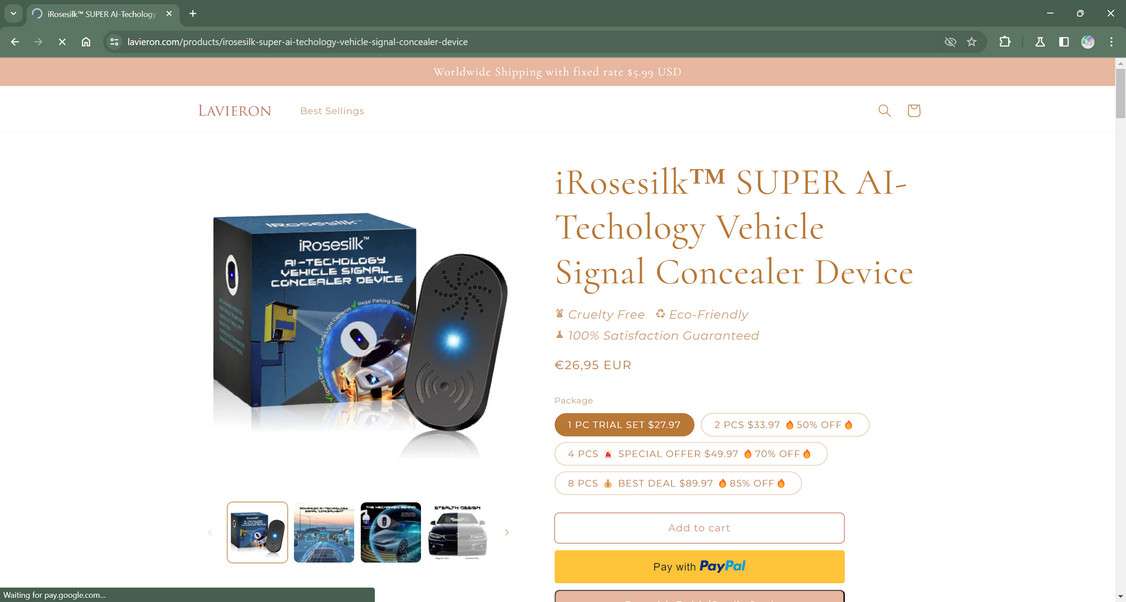
iRosesilk Vehicle Signal Concealer Device Scam Overview
The iRosesilk AI-Techology Vehicle Signal Concealer Device scam is running rampant across social media platforms like Facebook, Instagram, TikTok, and YouTube. Scammers are heavily promoting fake ads that use staged demonstrations and false claims to promote a product that simply does not work as advertised.
This device goes by several similar names like the iRosesilk SUPER AI-Techology Vehicle Signal Concealer Device, iRosesilk Ultimate AI-Techology Vehicle Signal Concealer Device, iRosesilk Invisible 5G AI-Techology Vehicle Signal Concealer Device, or simply the iRosesilk 5G AI-Techology Vehicle Signal Concealer Device.
This overview will take a deep dive into how this scam operates to hook victims, examining the deceitful tactics being used such as:
- Manipulated video demonstrations
- False claims about blocking camera signals
- Fake positive customer reviews
- Exaggerated capabilities that don’t exist
- Deceptive pricing strategies
- Low-quality products being drop shipped
Understanding the mechanisms behind this vehicle surveillance jamming scam is crucial to avoid being swindled. We will analyze the misleading advertising, phony testimonials, and sneaky ways the scammers maximize their profits off unsuspecting consumers.
Baiting Victims with Viral Video Ads
The cornerstone of this scam involves circulating heavily manipulated video advertisements to spread awareness of the so-called “AI-powered signal blocking” device. These polished ads use green screen technology and other tricks to stage dramatized demos of the iRosesilk device supposedly disabling speed cameras and traffic lights.
The ads portray cars freely speeding past radar guns without detection, breezing through red lights without consequences, and disabling parking sensors. Dramatic voiceovers hype up the “privacy” and “freedom” offered by the AI-technology while urgent calls to action get viewers to clickthrough to purchase.
Fabricating Fake Positive Reviews
To further influence potential victims, the ads incorporate fake positive customer testimonials raving about how well the device works. These include reviews like “This signal concealer is truly my right helper!” and “Its safety performance gives me more confidence on the road.”
Of course these are completely fabricated experiences, but they help reassure viewers that the product delivers as promised. Scammers know social proof is extremely persuasive.
Promising Non-Existent Technology
At the core of the deception is the fact that this supposed AI-powered vehicle signal concealing technology simply does not exist yet. No device can actually block the communication between your car and speed cameras, traffic lights, or parking sensors to render you “invisible”. It’s well beyond current technological capabilities.
But the scammers bank on the compelling idea blinding victims to this reality. Drivers desperately wish this kind of product existed to avoid fines, so the elaborate scam takes advantage of these unfulfilled desires.
Maximizing Profits Through Deceptive Pricing
The fake product sites allow purchases between $29 to $89 per device, enabling scammers to maximize their profit margins. This pricing strategy capitalizes on the perceived value of the fictional AI-technology being advertised.
In reality, the scammers are purchasing cheap $2 LED car door lights in bulk from Chinese websites like Alibaba. So they stand to make up to an 1,150% profit on each sale, raking in cash from their deception.
Drop Shipping Worthless Products
To complete the ruse, the scammers drop ship the $2 LED lights ordered in bulk to any victims who actually complete a purchase. Some victims may not receive anything at all after payment.
Either way, victims are left feeling ripped off and misled when they eventually realize the product has no capabilities to block any signals whatsoever. It’s merely a super cheap car accessory disguised as advanced surveillance evasion technology.
Scammers Promoting the Same Device Under Various Brand Names
Be aware that scammers are promoting the same $2 LED light scam product using a variety of fictional brand names and labels. Some other brand names to watch out for include:
- Lyseemin AI-Techology Vehicle Signal Concealer Device
- DriveFree AI-Techology Vehicle Signal Concealer Device
- IntelGuardTM AI-Techology Vehicle Signal Concealer Device
- PZGONE AI-Techology Vehicle Signal Concealer Device
- Keovp AI-Techology Vehicle Signal Concealer Device
- iVehsig 5G AI-Techology Vehicle Signal Concealer Device
- JKYBM AI-Technology Vehicle Signal Concealer Device
Despite the different names used across scam ads, it is the same cheap, ineffective $2 car light being drop shipped to victims. The variety of brand names just allows scammers to promote the same scam under different guises.
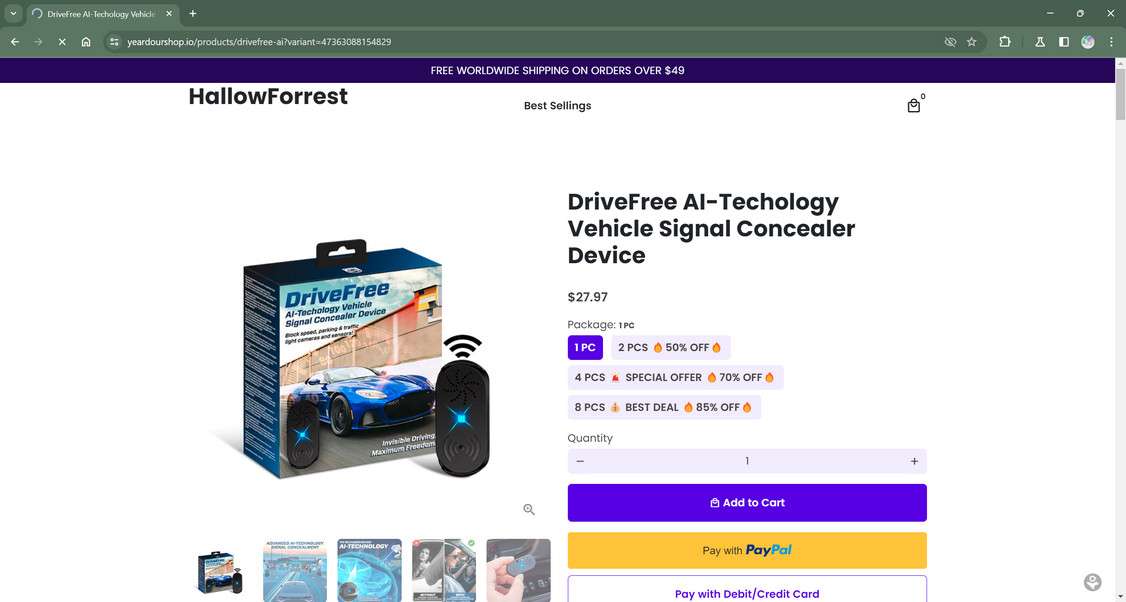
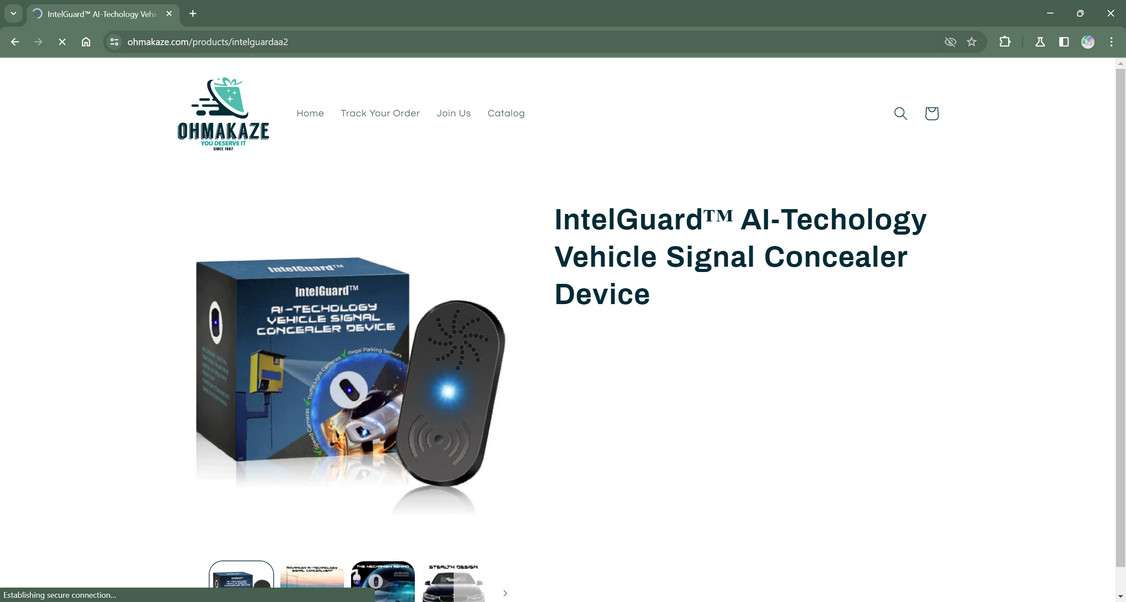
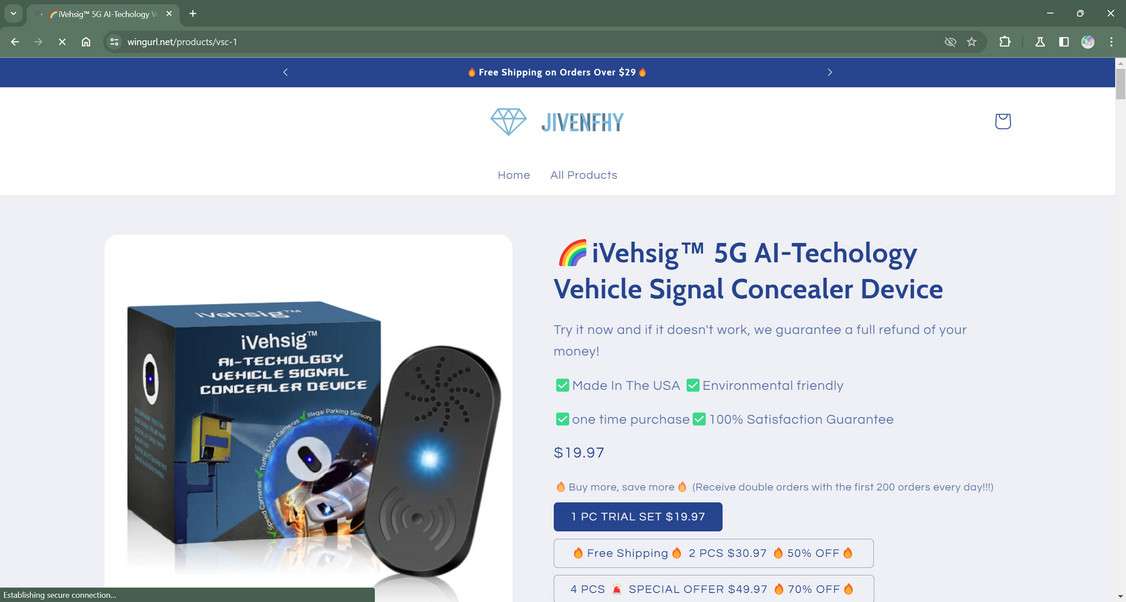
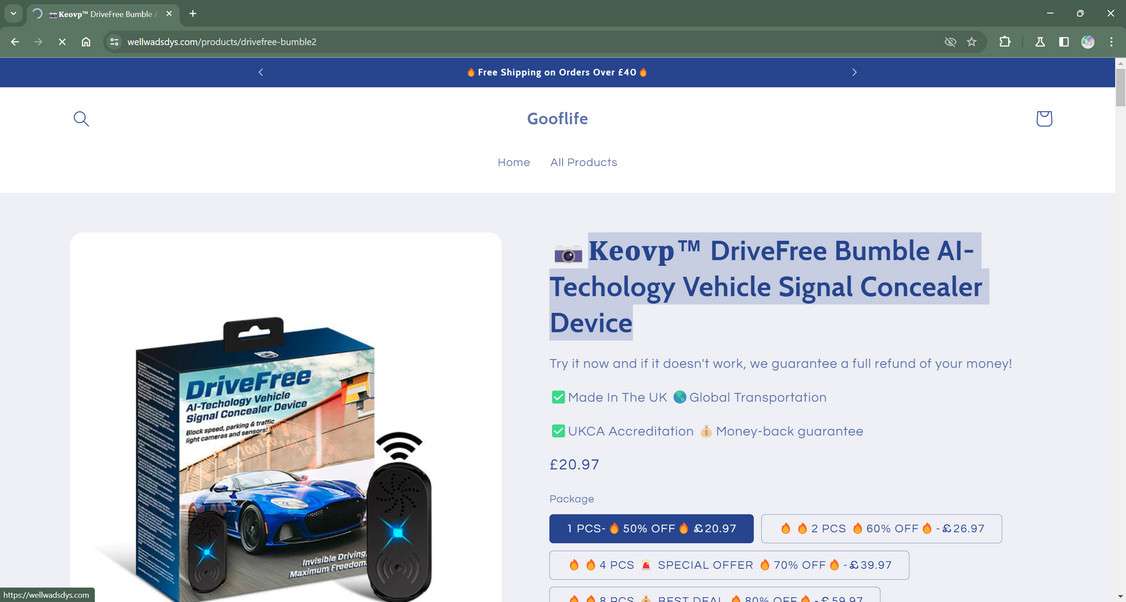
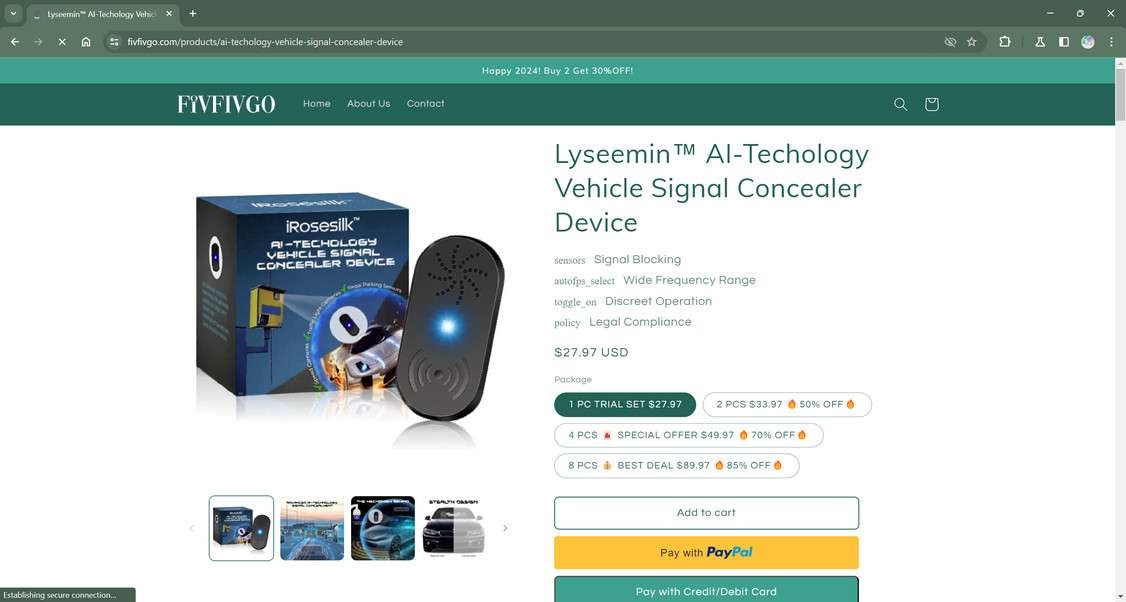
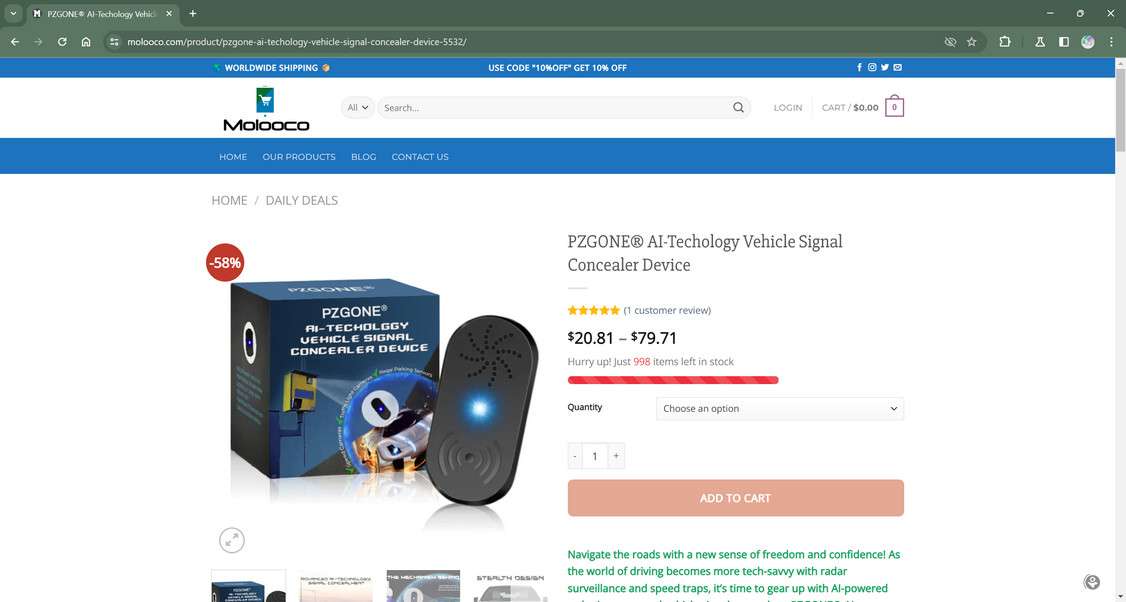
Do not be fooled if you see ads for a supposed “AI vehicle surveillance blocker” using a name other than iRosesilk. All these scams center around false advertising of the same worthless product simply repackaged under different fictional brands. Stay vigilant and steer clear of any promotions for questionable vehicle signal jamming technology.
What Victims Actually Receive
In reality, what victims receive if they order this device is nothing more than a cheap $2 car accessory readily available on sites like Alibaba. The actual device shipped out is a simple “Broadcasting Prompt Reminder Wireless Safety Rgd Car Door Open Traffic Warning Light”.
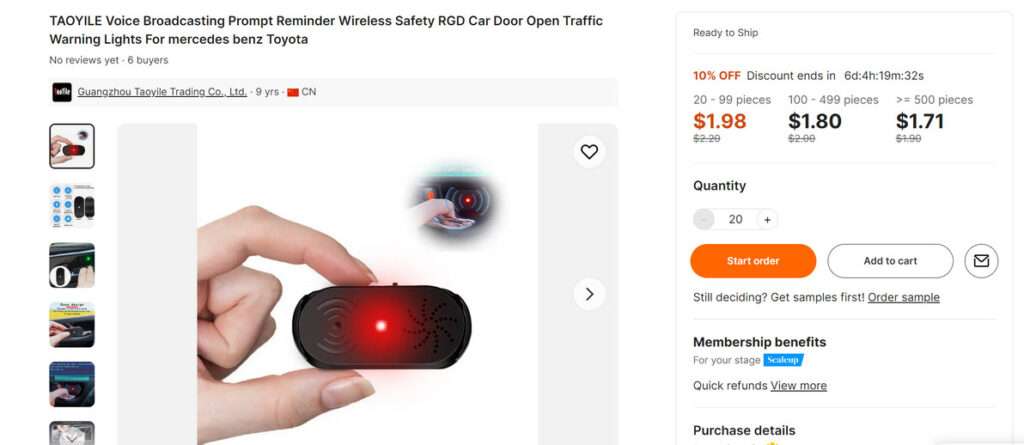
This is a little LED light that reminds you if you left your door open. It does absolutely nothing to block any signals or make your car “invisible” to cameras. It’s just a $2 LED light in fancy packaging.
The scammers simply drop ship this cheap device to victims, keeping the difference as profit. So the scam centers around false advertising and exaggerated product claims.
How the iRosesilk Vehicle Signal Concealer Device Scam Works
The iRosesilk scam is carefully orchestrated across multiple platforms and targets unsuspecting drivers with clever psychological tactics. Here is a step-by-step breakdown of how this predatory scam operates:
Step 1 – Creating Fake Ads
The scammers begin by designing eye-catching video ads showcasing the supposed features of the iRosesilk device. They fabricate elaborate footage using green screens and video editing tricks to simulate the device blocking signals to speed cameras and traffic lights. Dramatic voiceovers tout the benefits of “driving freely without interference.”
Catchy taglines are incorporated like “Take back control of your driving freedom!” and “Outsmart surveillance cameras with ease!” These ads are crafted to go viral while conveying urgent FOMO (fear of missing out).
Step 2 – Purchasing Cheap Products in Bulk
Meanwhile, the scammers purchase hundreds of generic $2 “Broadcasting Prompt Reminder Wireless Safety Light” products in bulk from Alibaba and other Chinese e-commerce sites. These are dirt cheap LED car door lights that do absolutely nothing to block signals.
Step 3 – Setting Up Fake Online Stores
The scammers then create fake e-commerce sites with domain names extremely similar to the real product name, like iRosesilkSignalBlocker.com. These sites are designed to look as legitimate as possible with borrowed logos and stock product photos.
Step 4 – Promoting the Ads on Social Media
The fake ads are then blasted out through Facebook, TikTok, Instagram, and YouTube using engagement tactics like comments and shares to avoid detection. They target users who are most likely to be tempted by the scam, like people interested in tech gadgets or excited by “life hacks”.
Step 5 – Driving Traffic to the Fake Sites
Whenever a user engages with the ad, they are funneled directly to the scam e-commerce site prepared in Step 3. At this point the false legitimacy of the store and product makes victims more likely to trust the claims.
Step 6 – Collecting Payments
The sites allow payments via credit card or PayPal for an “easy checkout experience”. Once payments are collected, most victims feel reassured that they will receive the product soon. Prices range from $29 to $89 per device, allowing scammers to maximize profits.
Step 7 – Fulfilling Orders with $2 Products
For fulfilling orders, the scammers simply package up the dirt cheap products sourced from Alibaba that have no signal blocking capabilities whatsoever. Some may even neglect to ship anything at all.
Step 8 – Vanishing Without a Trace
With payments collected and cheap products shipped, the scammers vanish from their temporary sites. They are ready to begin the cycle again with new domains and fake ads to avoid being flagged.
Step 9 – Victims Receive Worthless Products
Victims who actually receive a product in the mail are usually dismayed to find a simple $2 LED car light that does nothing to prevent speeding tickets. But by this point, it’s too late and the scammers have already profited.
As you can see, this scam is intelligently orchestrated to manipulate perceptions around the product with social proof and false authority. The online infrastructure also makes it easy to dupe victims who believe they are making safe purchases. Being aware of these predatory tactics is key to avoiding scams that are all too common online.
What to Do If You Are a Victim
If you fell for this scam and ordered the iRosesilk AI-Techology Vehicle Signal Concealer Device online, here are some important steps to take:
- Contact your credit card company or payment provider immediately to report the transaction and request a chargeback. Provide any evidence you have that the product does not match the listings.
- Report the scam to the FTC at ReportFraud.ftc.gov. File a complaint with the details so they can investigate the scheme.
- Leave reviews about the scam on consumer sites like Trustpilot and BBB to warn others. Include screenshots of the false ads.
- Contact the domain registrar where the scam site is hosted to report it. Provide the domain name.
- Warn friends and family who could also encounter the ads about this scam on social platforms. Share posts to spread awareness.
- Research where you should correctly report the scam ads on the platform where you saw them (YouTube, Facebook, TikTok, etc). Submit a scam ad report.
- Change passwords on accounts that may have been compromised by entering payment info on the scam site. Enable two-factor authentication where possible.
- Keep monitoring statements for any additional suspicious charges and report them immediately. Consider cancelling the card used if needed.
Frequently Asked Questions about the iRosesilk Vehicle Signal Concealer Scam
Concerned you may be targeted by this deceptive scam? Unsure if those tempting ads are legit or fake? Here are answers to the most frequently asked questions about the Too Good to Be True iRosesilk signal jamming device:
What exactly is the iRosesilk scam?
The iRosesilk scam involves false advertisements promoted online and on social media selling a fictional vehicle surveillance blocking device. Scammers use fake demos and fabricated claims to promote a cheap $2 LED car light as an advanced AI-powered signal jamming system.
How does the iRosesilk scam work?
Scammers bait victims with manipulated video ads showing the device “blocking” speed cameras and traffic lights. Fake reviews reinforce the deception. Victims pay up to $89 but receive a worthless $2 car light that cannot actually block any signals.
What capabilities does the real iRosesilk device have?
In truth the cheap LED light shipped to victims has no signal blocking capabilities whatsoever. It is a simple battery-powered door light reminder, not advanced AI technology able to block speed cameras.
What are the claims made in the iRosesilk scam ads?
The deceptive ads falsely claim the device uses AI to block speed camera, red light camera, and parking sensor signals. The ads promise complete “invisibility” from traffic surveillance systems.
Can the device really block traffic cameras and parking sensors?
No, this technology does not currently exist. No device is capable of blocking the communication between your car and traffic control systems. The ads are completely fabricated.
Are the positive customer reviews in the ads real?
No, the rave reviews and 5-star ratings in the iRosesilk scam ads are totally invented. There are no genuine reviews from real paying customers, only fake testimonials.
How much does the iRosesilk device cost?
The fake sites sell the worthless lights for $29 to $89 while costing just $2 to produce. Scammers pocket massive profits through deception and false advertising.
What should you do if you already purchased the iRosesilk device?
If you fell victim to this scam, immediately contact your bank and payment provider to dispute the charges and report the fraud. Also file complaints with the FTC to alert them of the scheme.
How can you spot the iRosesilk or similar vehicle surveillance scams?
Be wary of too-good-to-be true claims about signal blocking tech. Look for fake reviews, promotions exclusively online, and prices that seem inflated. Do your research before purchasing.
The Bottom Line
The bottom line is that the iRosesilk AI-Techology Vehicle Signal Concealer Device simply does not work as advertised. No device exists yet that can actually block signals and render your car invisible to speed cameras or surveillance equipment.
These online ads are preying on people’s desire for more driving freedom and privacy through exaggerated claims. Don’t fall for the manipulated videos or fake reviews. If it seems too good to be true, it usually is. Stick to driving legally instead of wasting money on a $2 LED light.










